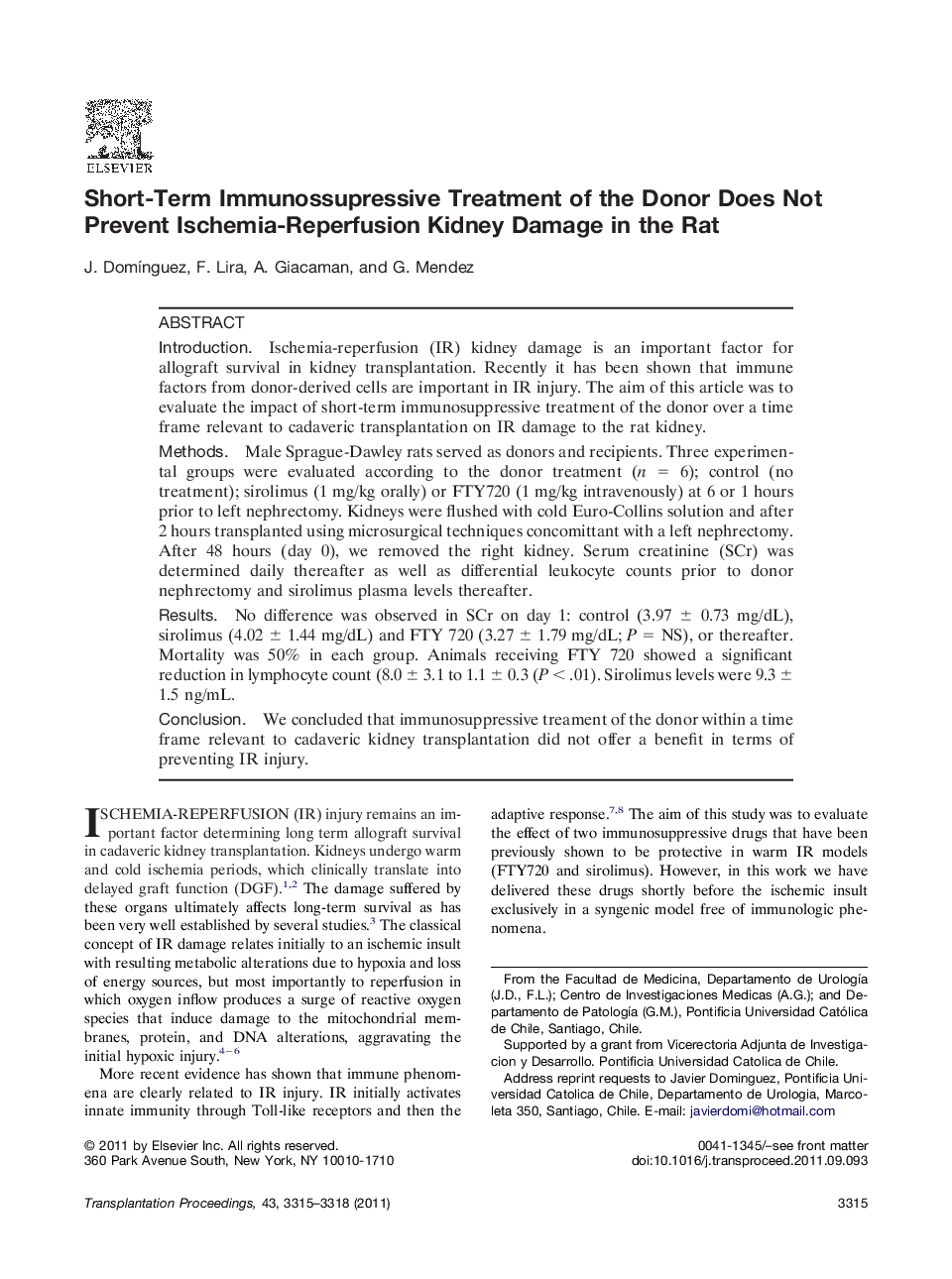| Article ID | Journal | Published Year | Pages | File Type |
|---|---|---|---|---|
| 4258587 | Transplantation Proceedings | 2011 | 4 Pages |
IntroductionIschemia-reperfusion (IR) kidney damage is an important factor for allograft survival in kidney transplantation. Recently it has been shown that immune factors from donor-derived cells are important in IR injury. The aim of this article was to evaluate the impact of short-term immunosuppressive treatment of the donor over a time frame relevant to cadaveric transplantation on IR damage to the rat kidney.MethodsMale Sprague-Dawley rats served as donors and recipients. Three experimental groups were evaluated according to the donor treatment (n = 6); control (no treatment); sirolimus (1 mg/kg orally) or FTY720 (1 mg/kg intravenously) at 6 or 1 hours prior to left nephrectomy. Kidneys were flushed with cold Euro-Collins solution and after 2 hours transplanted using microsurgical techniques concomittant with a left nephrectomy. After 48 hours (day 0), we removed the right kidney. Serum creatinine (SCr) was determined daily thereafter as well as differential leukocyte counts prior to donor nephrectomy and sirolimus plasma levels thereafter.ResultsNo difference was observed in SCr on day 1: control (3.97 ± 0.73 mg/dL), sirolimus (4.02 ± 1.44 mg/dL) and FTY 720 (3.27 ± 1.79 mg/dL; P = NS), or thereafter. Mortality was 50% in each group. Animals receiving FTY 720 showed a significant reduction in lymphocyte count (8.0 ± 3.1 to 1.1 ± 0.3 (P < .01). Sirolimus levels were 9.3 ± 1.5 ng/mL.ConclusionWe concluded that immunosuppressive treament of the donor within a time frame relevant to cadaveric kidney transplantation did not offer a benefit in terms of preventing IR injury.
